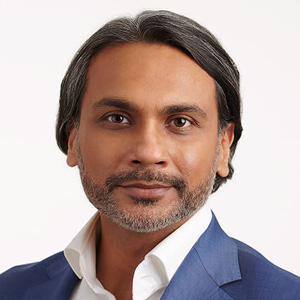Industry Thought Leadership
Unlocking 5G Monetization in the MEA Region
July, 2024The Middle East and Africa (MEA) is quite a diverse region in terms of telecommunications and digital transformation. The Gulf Cooperation Council (GCC) has made significant strides in its 5G journey, with countries such as the UAE and Saudi Arabia emerging as leaders in 5G deployments and speed. In contrast, Africa is still at the early stages of its 5G development. Currently, 77% of mobile data across the region is still on 4G, while 5G accounts for approximately 15%, primarily driven by the advancements in the GCC. Although 4G continues to grow in Africa, a wave of 5G investments is on the horizon as spectrum allocation progresses and operators seek solutions to alleviate the growing congestion on their 4G networks.
The MEA region is uniquely positioned to harness the transformative power of 5G technology. By focusing on key areas such as enhanced mobile broadband, fixed wireless access and private wireless for enterprises, Network as Code, IoT, and smart cities, operators can unlock significant monetization opportunities.
With its ultra-high speeds, low latency, and massive connectivity capabilities, 5G promises to revolutionize various industries and create new revenue streams. As countries across the region continue to deploy this next-generation network, the focus is increasingly on how to monetize it effectively. Here are some key opportunities, strategies, and innovations for monetizing 5G in the MEA region.
5G monetization sees operators move beyond converting 4G subscriptions to 5G, upselling data and speed tiers and expanding the connectivity base, to capturing home and SoHo connectivity through 5G Fixed Wireless Access (FWA) and expanding within the enterprise market with private wireless and network slicing.
FWA is a critical component of 5G monetization which is already yielding success with consumers, as 70% of mobile traffic is already being consumed by video and we are seeing a 45% CAGR growth in the global cloud gaming market. In areas where fixed-line infrastructure is limited or non-existent, FWA provides a viable alternative for high-speed internet access. For businesses, especially in underserved and rural areas, FWA can ensure reliable and fast connectivity, essential for operations and growth. Enterprises can leverage FWA for cloud-based applications, video conferencing, and other bandwidth-intensive activities, significantly enhancing their productivity. Operators can offer customized FWA packages for enterprises, ensuring dedicated bandwidth and superior service levels, thereby unlocking a lucrative revenue stream and increasing profitability. Globally, FWA has emerged as the leading 5G use case in the United States. This trend is mirrored in MEA where Nokia has achieved significant success with its FWA deployment focus on underserved consumers in sub-urban and rural areas, providing substantive additional capacity potential of mmWave. Moreover in collaboration with Du, Nokia has conducted a highly successful FWA deployment with home wireless traffic representing around 80% of 5G traffic.”
The superior speeds and reliability of 5G networks provide an enhanced mobile internet experience, attracting both consumers and businesses. Operators in the MEA region can capitalize on this by bundling 5G services with premium content such as high-definition video streaming, cloud gaming, augmented reality (AR), and virtual reality (VR) experiences can further drive subscriber growth and increase revenue.
The superior speeds and reliability of 5G networks provide an enhanced mobile internet experience, attracting both consumers and businesses. Operators in the MEA region can capitalize on this by bundling 5G services with premium content such as high-definition video streaming, cloud gaming, augmented reality (AR), and virtual reality (VR) experiences can further drive subscriber growth and increase revenue.
Network as Code is an innovative approach that can revolutionize 5G monetization, allowing CSPs to monetize network capabilities by partnering with application developers, simplifying the complexity for third parties to act on those capabilities thereby offering a monetization framework for the different stakeholders. It allows operators to program and manage their networks using software, enabling greater flexibility, efficiency, and scalability. By adopting Network as Code, operators in the MEA region can offer highly customized and on-demand network services to their customers. For enterprises, this means the ability to dynamically allocate network resources based on real-time needs, ensuring optimal performance for critical applications. Monetization opportunities arise from providing Network as Code as a service, where businesses pay for network capabilities as they use them. This not only drives new revenue but also enhances customer satisfaction by delivering tailored solutions.
The Internet of Things (IoT) and Industry 4.0 are poised to benefit significantly from 5G's capabilities. The low latency and massive connectivity of 5G networks enable real-time data collection and analysis, essential for IoT applications. Industries can leverage 5G-enabled IoT solutions to optimize operations, improve efficiency, and reduce costs. Operators can monetize these opportunities by offering specialized IoT connectivity packages, data analytics services, and industry-specific solutions.
The MEA region is uniquely positioned to harness the transformative power of 5G technology. By focusing on key areas such as enhanced mobile broadband, fixed wireless access and private wireless for enterprises, Network as Code, IoT, and smart cities, operators can unlock significant monetization opportunities. Strategic partnerships, innovative service offerings, and a customer-centric approach will be essential for success. As 5G continues to roll out across the region, those who can effectively capitalize on its capabilities will lead the charge in the digital economy, driving growth and prosperity in the MEA region.

